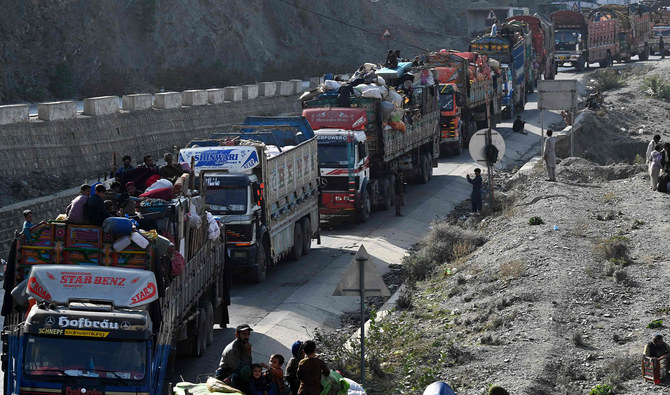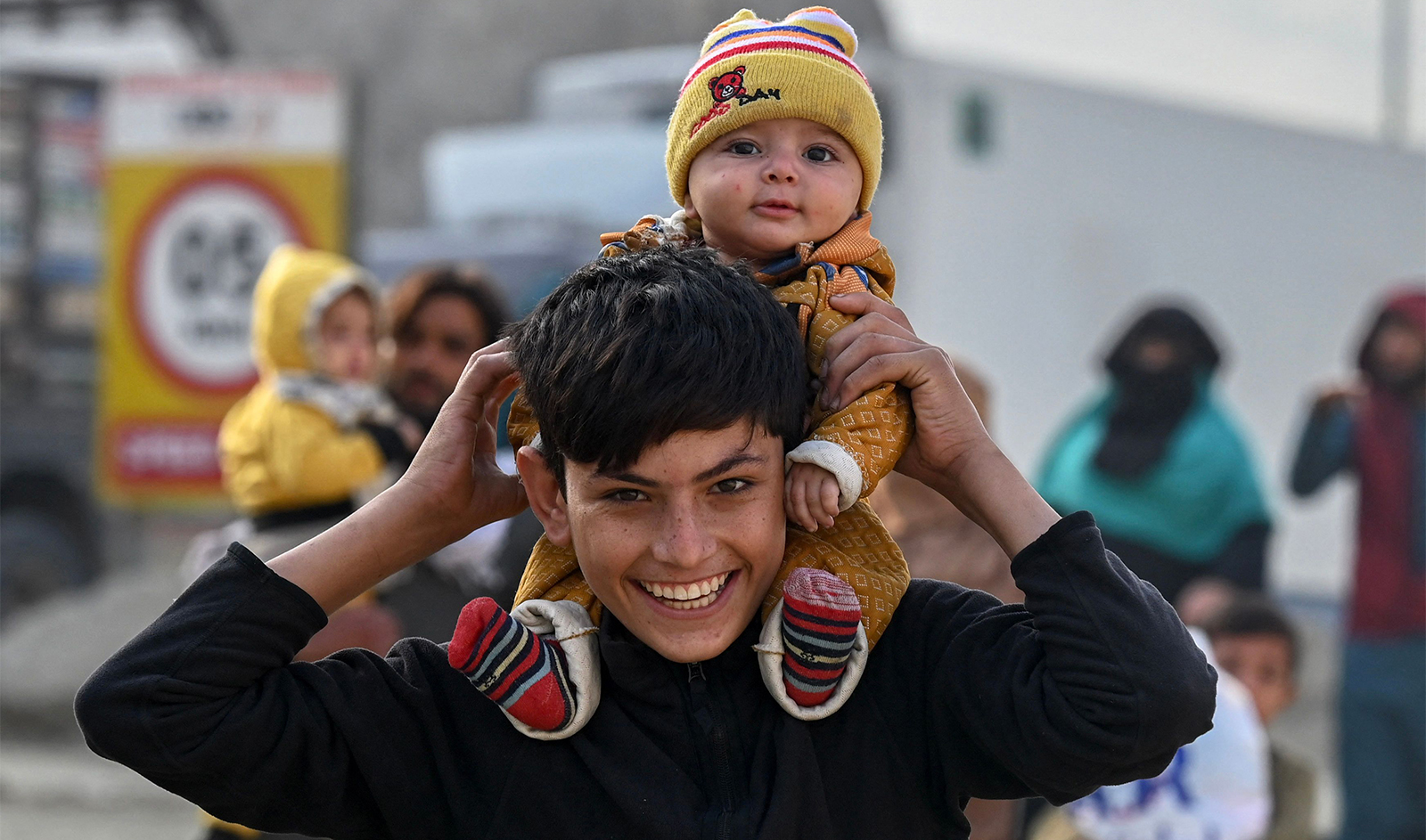ISLAMABAD: As Pakistan continues to round up illegal immigrants, Afghans forced to leave the South Asian country say they have been compelled to leave everything behind in Pakistan and travel to Afghanistan, where further uncertainty awaits them.
Pakistan last month asked all illegal immigrants, mostly Afghan nationals, to leave the country by November 1, saying they were involved in attacks, smuggling and other offenses.
The South Asian country has set up tens of holding centers to speed up the repatriation process as authorities continue to arrest illegal immigrants in nationwide sweeps since the expiry of the deadline.
Afghan nationals, many of whom were born in Pakistan, say they could not take with them all what they had built in Pakistan over the years, decades for some, and had to leave to avoid arrests.
“We had built a home, they made us leave everything behind, we took half of our clothes with us, and let go of half of it,” Yasoon, a 45-year-old Afghan woman who only gave her first name, told AFP news agency
“We have been through so much that I am still shaking, and everything is left behind and we came.”

Trucks transporting Afghan refugees with their belongings are seen along a road towards the Pakistan-Afghanistan Torkham border on November 3, 2023. (AFP)
Around 1.7 million, out of a total of four million, Afghans in Pakistan had no documents, according to the Pakistani government. It insists the expulsion order did not specifically target Afghans, but undocumented foreigners living in the South Asian country.
The expulsion order followed suicide bombings in Pakistan this year that the government said involved Afghan nationals, though it did not provide any evidence.
Khalil Haqqani, the Taliban’s refugees minister, criticized Pakistan for the move, saying Islamabad needed to reconsider its decision.
“The move which they (Pakistan) have made while in this difficult winter and circumstances, it is all against Islamic laws, human laws, and the Geneva commission law,” he said.
“It is against everything, they need to think again about it, and must give time for them (the Afghans) to return to Afghanistan with dignity.”

Afghan refugees in Pakistan walk towards the Pakistan-Afghanistan Torkham border on November 3, 2023, following Pakistan's government decision to expel people illegally staying in the country. (AFP)
Janna Gul, a 35-year-old Afghan man, lamented a lack of accommodation on the border.
“Here we have this tent as shelter, other than that we have nothing else,” Gul said. “If they just a built a room or two so we could stay with our family, just give us a place to stay to spend time in our own country.”
Another Afghan woman returnee, Rooh Gul, said they had not been provided documents that the Taliban border officials had promised them.
“Over there (Torkham zero point), my son was told (by the Taliban) to come here, that it would have facilities, ‘here they will give you papers’,” she said.
“We spent all night here, and now it is noon, but they still have not given us our papers.”
Pakistani authorities have increased the number of holding facilities at the northwestern border crossing of Torkham, which the majority of Afghans are using to leave, three times to cater to the rising number of returnees, Abdul Nasir Khan, the deputy commissioner for Pakistan’s Khyber district where the crossing is located, told Reuters.
Khan said 19,744 Afghans had crossed the border on Thursday.
“Everything is normal now as the returnees no longer needed to wait in queues for hours,” he added.












